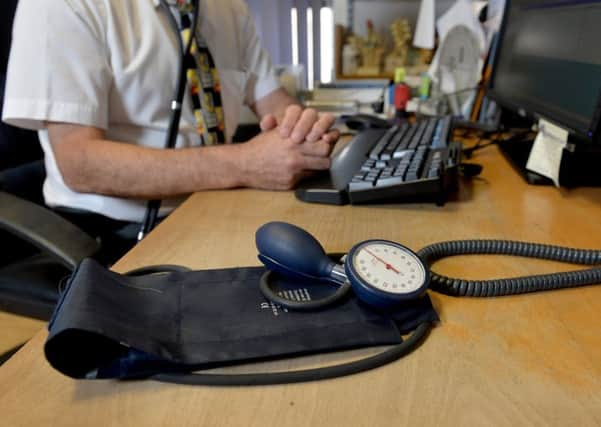Jayne Dowle: Plan for extra GP support staff is a ‘sticking plaster’ for NHS


The initiative is part of the 10-year NHS Plan, announced earlier this year with great fanfare by the Prime Minister. It will be funded by the extra £4.5bn that will be invested in community services by 2023.
In the future, each practice should have its own pharmacist to carry out medicine reviews, and a social-prescribing link worker, who will be able to direct patients towards everything from exercise classes to lose weight to arts and dance groups to help with mental health problems.
Advertisement
Hide AdAdvertisement
Hide AdNHS England chief executive Simon Stevens seems extraordinarily pleased with himself, saying that it represents the “biggest boost to general practice in more than 15 years, giving patients more convenient services at their local GP surgery while breaking down the divide between family doctors and community health services”.
He might be interested to learn that an even bigger divide already exists between GP surgeries and patients, the immediate hurdle being getting in touch with the surgery in the first place. I’m wondering when he last sat anxiously on the phone from 7.30am attempting to secure a so-called ‘emergency’ appointment, only to be told that there was nothing available until a week next Tuesday?
Is it any wonder that our hospital A&E departments are full to bursting, especially at this time of year, when freezing temperatures contribute to chronic illness and accidents?
I fail to see how the provision of a surgery worker charged with encouraging patients suffering from mental health problems to join a dance group will even begin to address, let alone tackle, over-stretched emergency services.
Advertisement
Hide AdAdvertisement
Hide AdI’m wondering also how that forgotten ‘army’, the receptionists and secretaries and managers who actually run GP surgeries, are reacting to this idea.
They are already at the sharp end of patient frustration because people can’t get through to the surgery on the telephone, or have to stand in bad-tempered queues half the morning waiting to be booked in.
Adding more members of staff requiring support onto their workload is hardly going to make their jobs easier or more efficient or their working day less stressful and under-pressure.
If NHS England really want to improve efficiency, they should invest more of this money into back-up staff and effective communications systems instead of grand gestures.
Advertisement
Hide AdAdvertisement
Hide AdAnd I do wonder if the dots will join up. I’ll give you an example. When my teenage son needed physiotherapy for a knee condition, we didn’t just stroll up to the nearest physio and present ourselves. We had to visit the doctor first, who wrote us a detailed referral letter.
Perhaps this process is going to change under the new arrangements, but it does flag up some serious potential for miscommunication, not to mention erroneous diagnosis.
The argument goes that 20,000 extra staff will allow GPs to spend more time with the sickest patients, given that the average appointment lasts just eight minutes. However this doesn’t mean that relatively minor medical issues should be airily dismissed And surely, general practitioners spend years in training so that they can assess the widest possible picture of a patient’s medical history and advise accordingly?
What is not being addressed here is the fact that we simply don’t have enough doctors to look after a burgeoning and ageing population.
Advertisement
Hide AdAdvertisement
Hide AdRecent efforts to boost recruitment have actually had a negative effect; the number of working full-time GPs is believed to have fallen by 400 in the last three years. A significant number of these are likely to be doctors who have decided to retire in their fifties, arguably just at the point where their years of professional experience are most in demand. Would it not make more sense to focus attention on persuading them to stay on and work a few more years instead of cashing in their pensions and leaving the NHS behind?
Professor Helen Stokes Lampard, who chairs the Royal College of GPs, said that she had no doubt that the new staff would become “high-skilled members of the GP team”. However she added: “Our prime objective must remain the recruitment and retention of thousands more GPs.”
I don’t think any patient who has waited three weeks for an appointment, or found themselves struck off a practice in the name of ‘cutbacks’ or is so frustrated with the service that they avoid approaching their doctor with a health concern in the first place, would disagree with this.
And with the greatest respect to the professions of physios, pharmacists and paramedics, I think most of us would also agree that this latest plan actually represents little more than a sticking plaster for what really ails the NHS today.